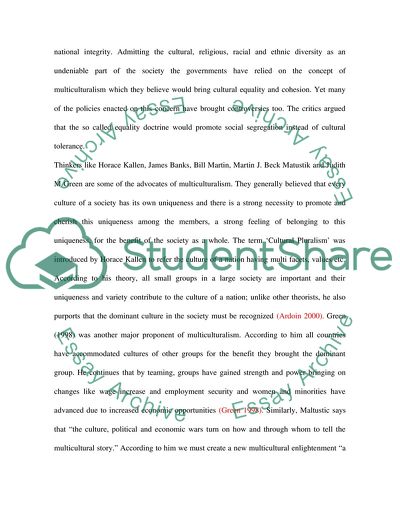Cite this document
(Do Multicultural Policies Promote Social Segregation Coursework, n.d.)
Do Multicultural Policies Promote Social Segregation Coursework. Retrieved from https://studentshare.org/social-science/1721595-critically-assess-the-view-that-multicultural-policies-promote-social-segregation
Do Multicultural Policies Promote Social Segregation Coursework. Retrieved from https://studentshare.org/social-science/1721595-critically-assess-the-view-that-multicultural-policies-promote-social-segregation
(Do Multicultural Policies Promote Social Segregation Coursework)
Do Multicultural Policies Promote Social Segregation Coursework. https://studentshare.org/social-science/1721595-critically-assess-the-view-that-multicultural-policies-promote-social-segregation.
Do Multicultural Policies Promote Social Segregation Coursework. https://studentshare.org/social-science/1721595-critically-assess-the-view-that-multicultural-policies-promote-social-segregation.
“Do Multicultural Policies Promote Social Segregation Coursework”, n.d. https://studentshare.org/social-science/1721595-critically-assess-the-view-that-multicultural-policies-promote-social-segregation.


